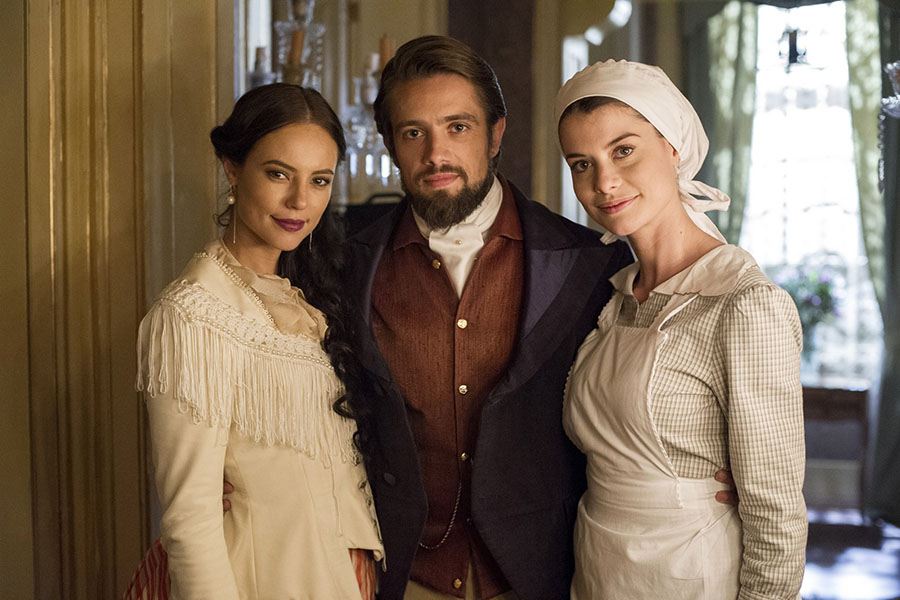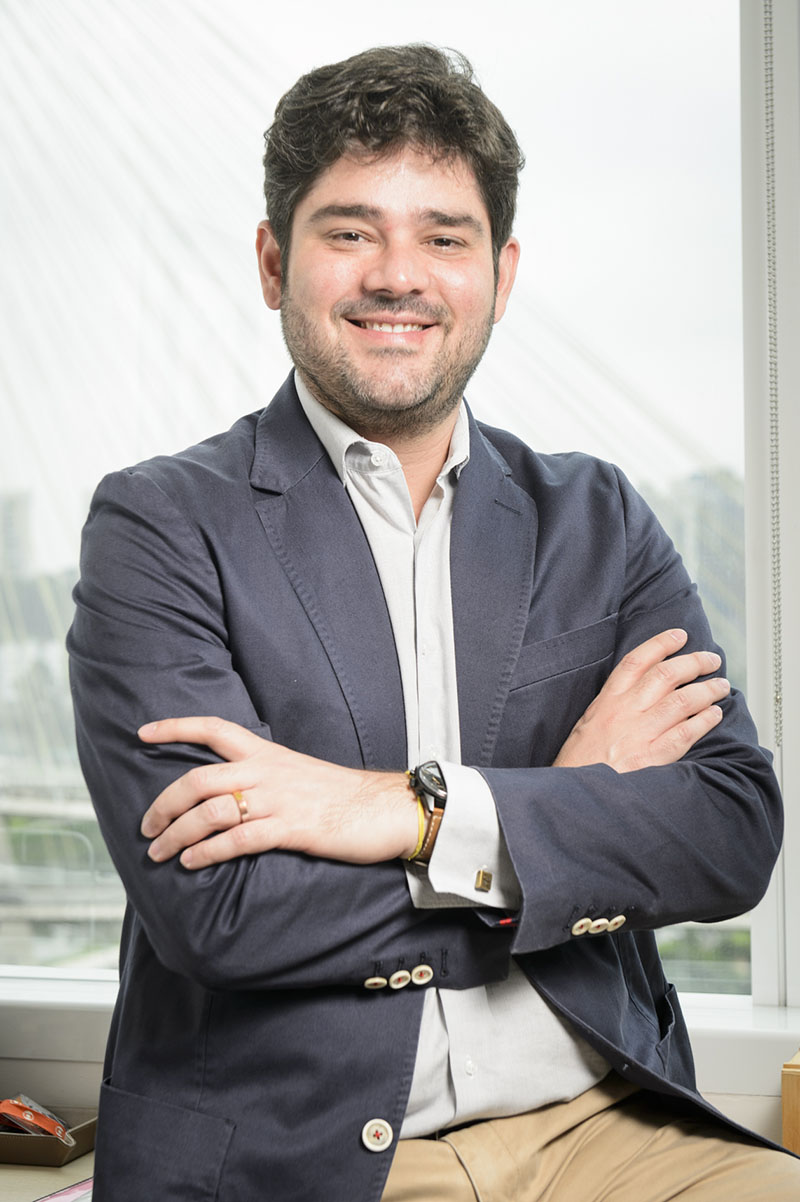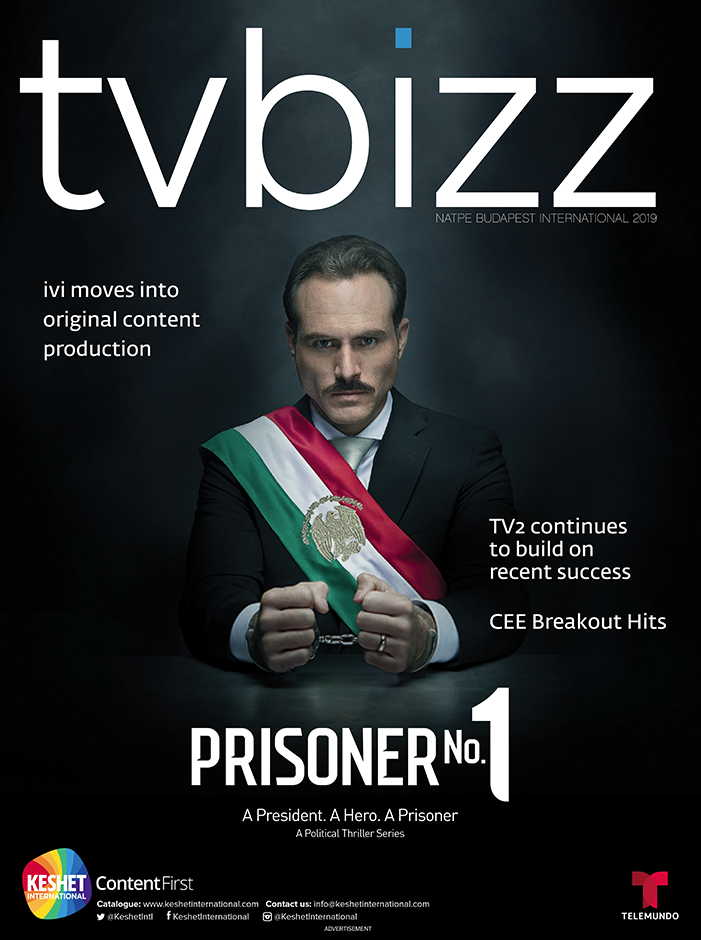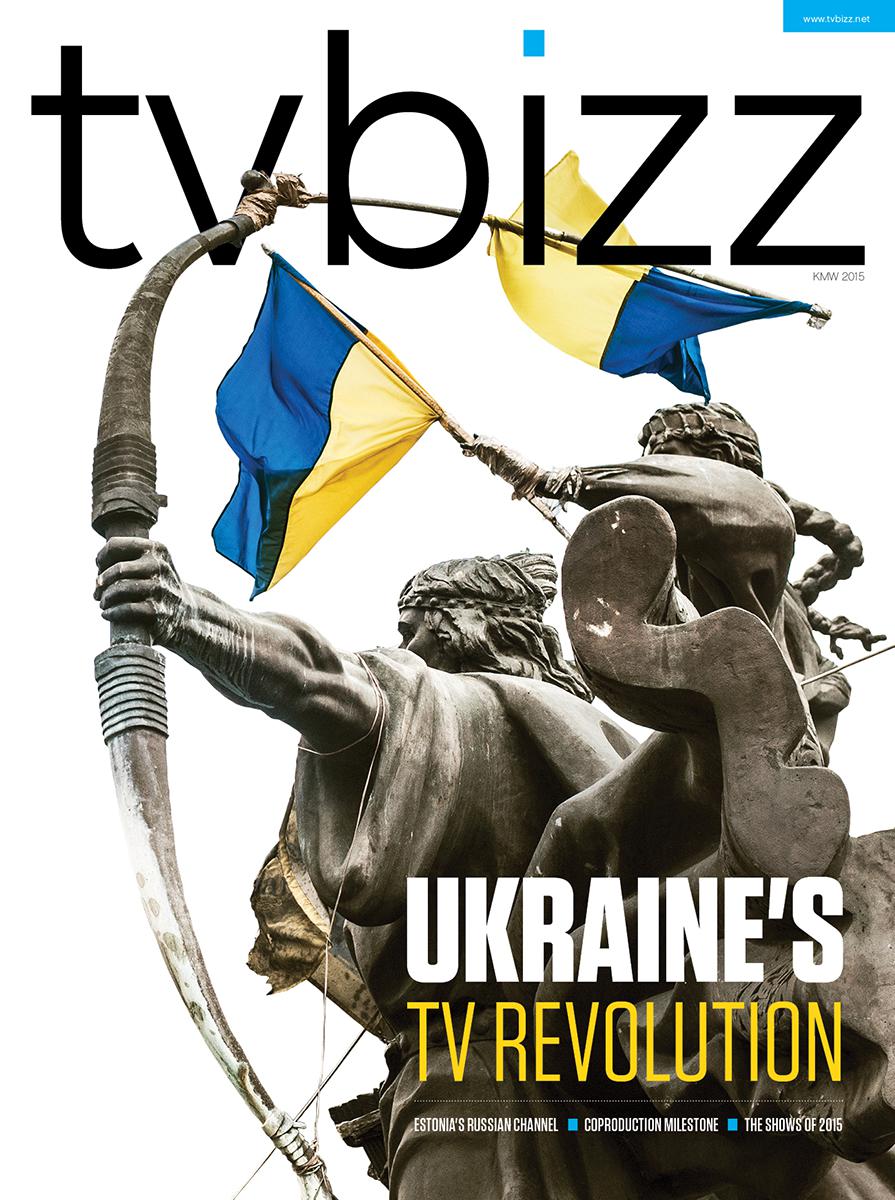Stories for everyone - Globo’s international ambitions
Iliyan Stoychev asks Raphael Corrêa Netto, Executive Director of International Business at Globo, what are the latest highlights in the catalog of the Brazilian giant and how the company adapts to the fast-changing international market and the CEE region, in particular.

Total Dreamer
What is Globo’s latest slate for NATPE Budapest? What are your newest titles that you will offer during the market? Do you have anything special planned for NATPE Budapest?
We will take our 2017 catalog to Budapest featuring six telenovelas, three series, one miniseries and five motion pictures. The telenovelas are the catalog’s highlights, whose demand is always very high. The format has very strong insertion in Eastern Europe - we have a loyal audience in the region that has been following our productions for decades. The same applies for Brazil, Latin America, and the rest of the world. We believe so much in this format that Globo’s CEO, Carlos Henrique Schroder, recently announced the construction of three brand new studios that will be used exclusively for the production of telenovelas. Located in Rio de Janeiro, the studios will be equipped with state-of-the-art technology from the audiovisual industry.
Total Dreamer is a good example of a vigorous production that has been appealing to different cultures - a modern, fast-paced fairy tale discussing current themes and with a strong relation to the digital environment. The telenovela was a blockbuster in Brazil, where it featured multi-screen actions before, during and after its screening on open TV. It was also a major hit in Portugal, ranked among the top 5 most watched pay TV shows in the country. In addition, the plot has already been licensed to Georgia, Middle East, North Africa, the United States and Puerto Rico, French Africa, Uruguay, El Salvador, Israel, and India.
Another example is the telenovela Time After Time, a classic love story with a twist in its plot: the leading couple falls in love in the nineteenth century, but their romance is tragically ended. More than a century later, they meet again and are given the chance to finally live their great love. In the CEE region, the production has already been selected by the pay TV channel Pirveli from Georgia.

In terms of sales, which are Globo’s most successful titles in the CEE markets? Which are your biggest markets in the region and where do you see potential for growth?
One of our greatest hits, Hidden Truths, which is about the underworld behind the luxury, allure, and glamour of fashion, won the International Emmy for Best Telenovela last year and has been licensed to more than 40 countries. Recently, it was sold to Kanal 5 in Macedonia, and for the pay TV channel Pirveli, from Georgia, a country that is very partial to drama and receptive to Globo’s productions. So much so that Iberia TV, another Georgian cable network, has recently added The Enchanted Tale to its grid. The telenovela, which also won the International Emmy for Best Telenovela (2013), breaks the mold by mixing the world of castles, kings, and villains with some elements of the Brazilian culture.
The entertainment market in the region is booming. The pay TV segment is still not fully matured, with the number of subscribers steadily increasing. The emergence of new broadcasting platforms and new programming possibilities is still new, but has already changed the market dynamics. The search for new and thought-provoking stories has grown. And we have a vast portfolio of high-quality work, covering various genres and themes that are flexible enough for both public and cable networks, as well as digital environments. The region is also fairly fragmented, with numerous countries, different cultures and many TV networks, which translates into good licensing opportunities for our content and allows for new partnerships.
With the rise of SVOD, can you identify any changes in the demand for content from traditional broadcasters regarding your catalog?
As mentioned, the growth of VOD services heated up the market. And this is very positive, as there has been an increase in demand for content in general, of varied formats, genres, themes, and lengths. Our catalog offers a wide content selection precisely thought to attend to the different realities and needs of our partners with regard to multi-screen programming strategies.
In 2017, how is the telenovela genre competing with Turkish drama and local series in CEE markets?
The popularization of Turkish dramas accelerated the competitive market, which is normal and healthy. It stimulates the creative environment and brings out new possibilities and paths which benefit viewers above all. Globo believes in constant evolution and the development of its content and artistic process. We continuously invest in talent and creation, production, and post-production infrastructure, so we can tell new stories and captivate audiences both in Brazil and around the world. All this because we understand society’s transformations, which are quickly reflected in the market.

Can the telenovela genre work well on digital platforms?
Telenovelas coexist with the digital environment in a variety of ways, offering unprecedented and extremely positive experiences for the audience, as well as further developing content production. In Brazil, for example, the chapters of our telenovelas are entirely available online for subscribers of Globo Play, Globo’s VOD platform. Snippets can also be seen by all Internet users. In addition, we have been increasingly creating exclusive content for the digital environment, taking the stories beyond the TV and complementing the public experience. This year’s catalog features three productions involving innovative multi-screen actions. Total Dreamer had a unique chapter-zero and a spin-off, both online exclusives. For Lady Revolution, we made a spin-off about the early life of an extremely charismatic character with whom the audience fell in love. In Burning Hearts, the spin-off was made as the telenovela aired, adding to the content aired on TV, with information on the disappearance of the matriarch of the Abdalla clan, one of the families in the plot’s core.
From your perspective, what is the biggest challenge in the content distribution industry today?
Undoubtedly, with the fragmentation of broadcasting platforms and the increased content offer, we feel even more motivated to develop our resources and maintain an innovative, quality portfolio that is relevant to the public. And, of course, also, to collaborate with our partners on programming strategies, since we work with varied content – that goes from telenovelas to superseries, series, miniseries, and films — content that fits different grids and that can be delivered to the audiences the way it is most convenient for them, including new digital platforms. On track with the new market reality, Globo has invested in new ways to create, produce, and distribute content. In addition to setting up three new telenovela studios, we recently launched the Casa dos Roteiristas (House of Screenwriters), in the city of Rio de Janeiro, which brings together Globo writers and promotes a brand new way of creating scripts for TV series and other short formats, covering varied themes and narrative forms. With important writers at the helm, this space will create content for different platforms and the international market as well. Each production will have a multi-language book: Brazilian Portuguese, English, and Spanish.▪
We will take our 2017 catalog to Budapest featuring six telenovelas, three series, one miniseries and five motion pictures. The telenovelas are the catalog’s highlights, whose demand is always very high. The format has very strong insertion in Eastern Europe - we have a loyal audience in the region that has been following our productions for decades. The same applies for Brazil, Latin America, and the rest of the world. We believe so much in this format that Globo’s CEO, Carlos Henrique Schroder, recently announced the construction of three brand new studios that will be used exclusively for the production of telenovelas. Located in Rio de Janeiro, the studios will be equipped with state-of-the-art technology from the audiovisual industry.
Total Dreamer is a good example of a vigorous production that has been appealing to different cultures - a modern, fast-paced fairy tale discussing current themes and with a strong relation to the digital environment. The telenovela was a blockbuster in Brazil, where it featured multi-screen actions before, during and after its screening on open TV. It was also a major hit in Portugal, ranked among the top 5 most watched pay TV shows in the country. In addition, the plot has already been licensed to Georgia, Middle East, North Africa, the United States and Puerto Rico, French Africa, Uruguay, El Salvador, Israel, and India.
Another example is the telenovela Time After Time, a classic love story with a twist in its plot: the leading couple falls in love in the nineteenth century, but their romance is tragically ended. More than a century later, they meet again and are given the chance to finally live their great love. In the CEE region, the production has already been selected by the pay TV channel Pirveli from Georgia.

Hidden Truths
In terms of sales, which are Globo’s most successful titles in the CEE markets? Which are your biggest markets in the region and where do you see potential for growth?
One of our greatest hits, Hidden Truths, which is about the underworld behind the luxury, allure, and glamour of fashion, won the International Emmy for Best Telenovela last year and has been licensed to more than 40 countries. Recently, it was sold to Kanal 5 in Macedonia, and for the pay TV channel Pirveli, from Georgia, a country that is very partial to drama and receptive to Globo’s productions. So much so that Iberia TV, another Georgian cable network, has recently added The Enchanted Tale to its grid. The telenovela, which also won the International Emmy for Best Telenovela (2013), breaks the mold by mixing the world of castles, kings, and villains with some elements of the Brazilian culture.
The entertainment market in the region is booming. The pay TV segment is still not fully matured, with the number of subscribers steadily increasing. The emergence of new broadcasting platforms and new programming possibilities is still new, but has already changed the market dynamics. The search for new and thought-provoking stories has grown. And we have a vast portfolio of high-quality work, covering various genres and themes that are flexible enough for both public and cable networks, as well as digital environments. The region is also fairly fragmented, with numerous countries, different cultures and many TV networks, which translates into good licensing opportunities for our content and allows for new partnerships.
With the rise of SVOD, can you identify any changes in the demand for content from traditional broadcasters regarding your catalog?
As mentioned, the growth of VOD services heated up the market. And this is very positive, as there has been an increase in demand for content in general, of varied formats, genres, themes, and lengths. Our catalog offers a wide content selection precisely thought to attend to the different realities and needs of our partners with regard to multi-screen programming strategies.
In 2017, how is the telenovela genre competing with Turkish drama and local series in CEE markets?
The popularization of Turkish dramas accelerated the competitive market, which is normal and healthy. It stimulates the creative environment and brings out new possibilities and paths which benefit viewers above all. Globo believes in constant evolution and the development of its content and artistic process. We continuously invest in talent and creation, production, and post-production infrastructure, so we can tell new stories and captivate audiences both in Brazil and around the world. All this because we understand society’s transformations, which are quickly reflected in the market.

Time after Time
Can the telenovela genre work well on digital platforms?
Telenovelas coexist with the digital environment in a variety of ways, offering unprecedented and extremely positive experiences for the audience, as well as further developing content production. In Brazil, for example, the chapters of our telenovelas are entirely available online for subscribers of Globo Play, Globo’s VOD platform. Snippets can also be seen by all Internet users. In addition, we have been increasingly creating exclusive content for the digital environment, taking the stories beyond the TV and complementing the public experience. This year’s catalog features three productions involving innovative multi-screen actions. Total Dreamer had a unique chapter-zero and a spin-off, both online exclusives. For Lady Revolution, we made a spin-off about the early life of an extremely charismatic character with whom the audience fell in love. In Burning Hearts, the spin-off was made as the telenovela aired, adding to the content aired on TV, with information on the disappearance of the matriarch of the Abdalla clan, one of the families in the plot’s core.
From your perspective, what is the biggest challenge in the content distribution industry today?
Undoubtedly, with the fragmentation of broadcasting platforms and the increased content offer, we feel even more motivated to develop our resources and maintain an innovative, quality portfolio that is relevant to the public. And, of course, also, to collaborate with our partners on programming strategies, since we work with varied content – that goes from telenovelas to superseries, series, miniseries, and films — content that fits different grids and that can be delivered to the audiences the way it is most convenient for them, including new digital platforms. On track with the new market reality, Globo has invested in new ways to create, produce, and distribute content. In addition to setting up three new telenovela studios, we recently launched the Casa dos Roteiristas (House of Screenwriters), in the city of Rio de Janeiro, which brings together Globo writers and promotes a brand new way of creating scripts for TV series and other short formats, covering varied themes and narrative forms. With important writers at the helm, this space will create content for different platforms and the international market as well. Each production will have a multi-language book: Brazilian Portuguese, English, and Spanish.▪





































